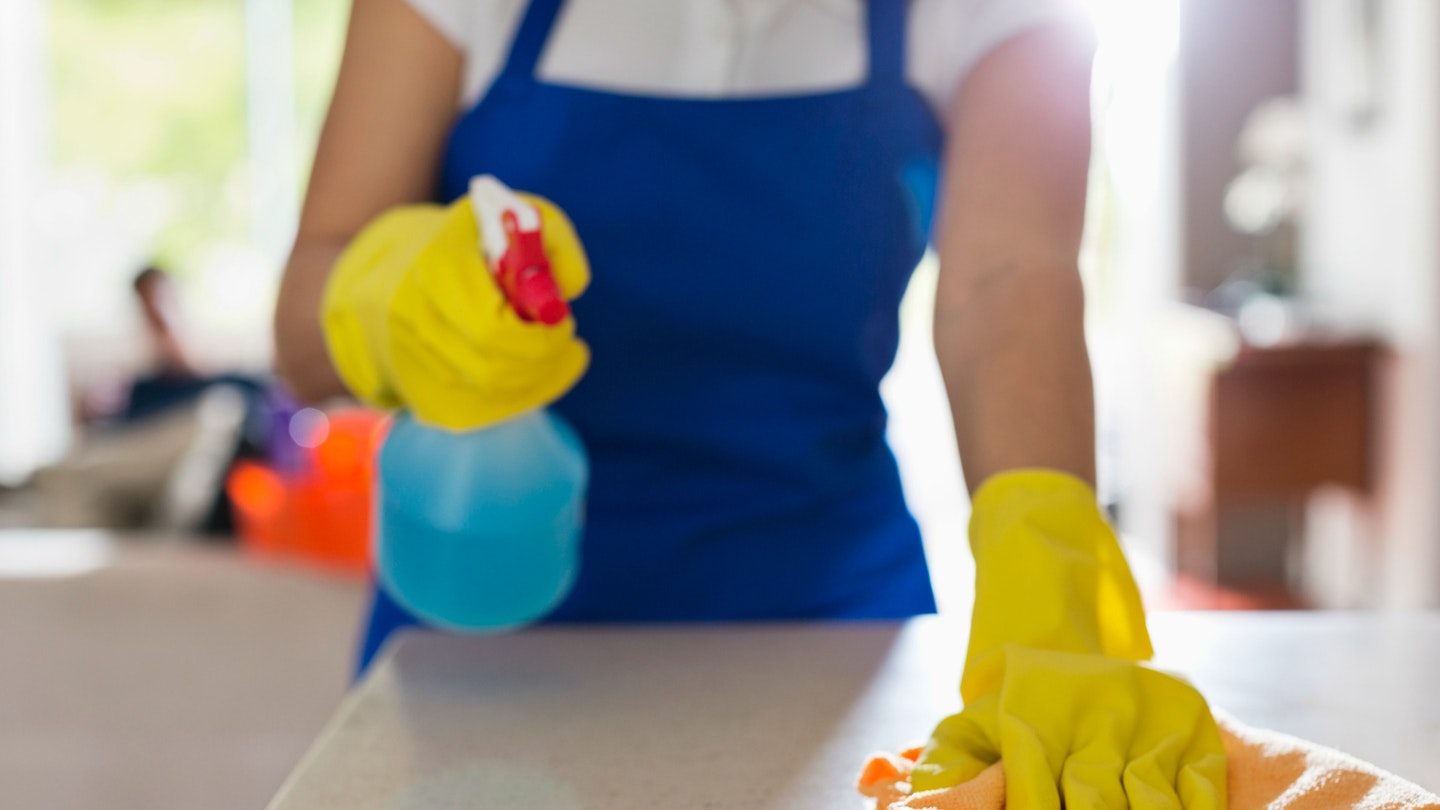Earlier this week, Bloomberg tweeted that some new research had found women whose partners 'helped' with the household chores were happier.
Simple bit of research, simple tweet. Right? Only within the choice of words you can actually see the entire problem with how domestic labour is managed in households all over the developed world.
The word 'helped' speaks volumes. Men 'help' with chores, apparently. Despite the fact that they live in these houses, have equal ownership or rentership over them, they are 'helping.'
If your friend comes over and folds some laundry while you finish getting ready to go out - that's helping. When your partner who lives there does it, it's not helping - it's pulling their weight.
Much like men being described as 'babysitting' when looking after their kids, 'helping' implies that household chores are not a male responsibility.
The word 'help' strongly infers that the domestic labour is the responsibility of the woman, and that when the man does some of it he is being kind or generous.
Women (and some men) responded to the tweet with frustration. Many of the replies mentioned the frustrating tendency for some men to them, 'I've done the [washing up/laundry/dusting for you' when doing chores.
Of course in reality you're not doing that work for someone else, because that suggests it's their work to do in the first place. You're doing it because you're an adult living in a shared household and therefore obliged to pull your weight.
As is traditional with any internet debate, there were those 'playing devil's advocate' asking whether if 'the man' works outside the home, 'the woman' should do all of the domestic labour.
Firstly, it's extremely lazy and inaccurate to assume that it's the male partner who works outside the home and the female one who works in it. But even if that's true, it's also not accurate to describe it as 'fair' for the home based partner to do all of the chores.
In couples where one works outside the home and the other doesn't, the stay-at-home parent should match the other partner's workload.
So, if he or she works 40 hours a week in the office, they should work 40 hours in the home. Anything above those 40 hours should be split equally.
Otherwise you get a situation where one partner is in the office during the day but ends neatly on the dot of six, comes home and gets to enjoy all of their downtime.
The gender imbalance between domestic labour is often called the second shift, and understood to be a major reason for the gender pay gap.
Anyone who has ever spent any time with children will know that they don't fit neatly into a schedule and therefore home based parents will end up working around the clock.
It's not fair for one partner to do all of the sick mopping, sheet washing, bad dream comforting and fifteen cycles of laundry a day, just because the other one has a job outside of the home.
Being a stay-at-home parent should not being a 24 hour a day slave to the household. Just because you are home based does not mean that you are responsible for everything that happens within the home. If your partner puts on a load of laundry or mops the floor, they are not 'helping' with your workload, they are taking responsibility for their own.
READ MORE: Men Claiming Ineptitude To Get Out Of Housework Is An Act Of Misogyny
